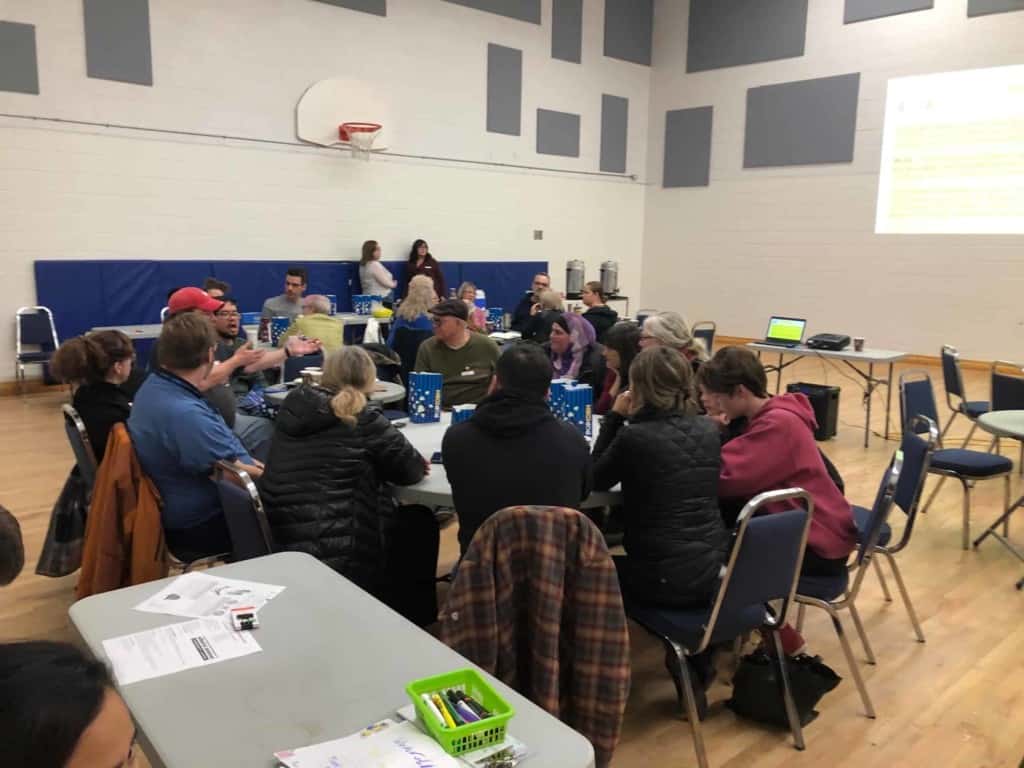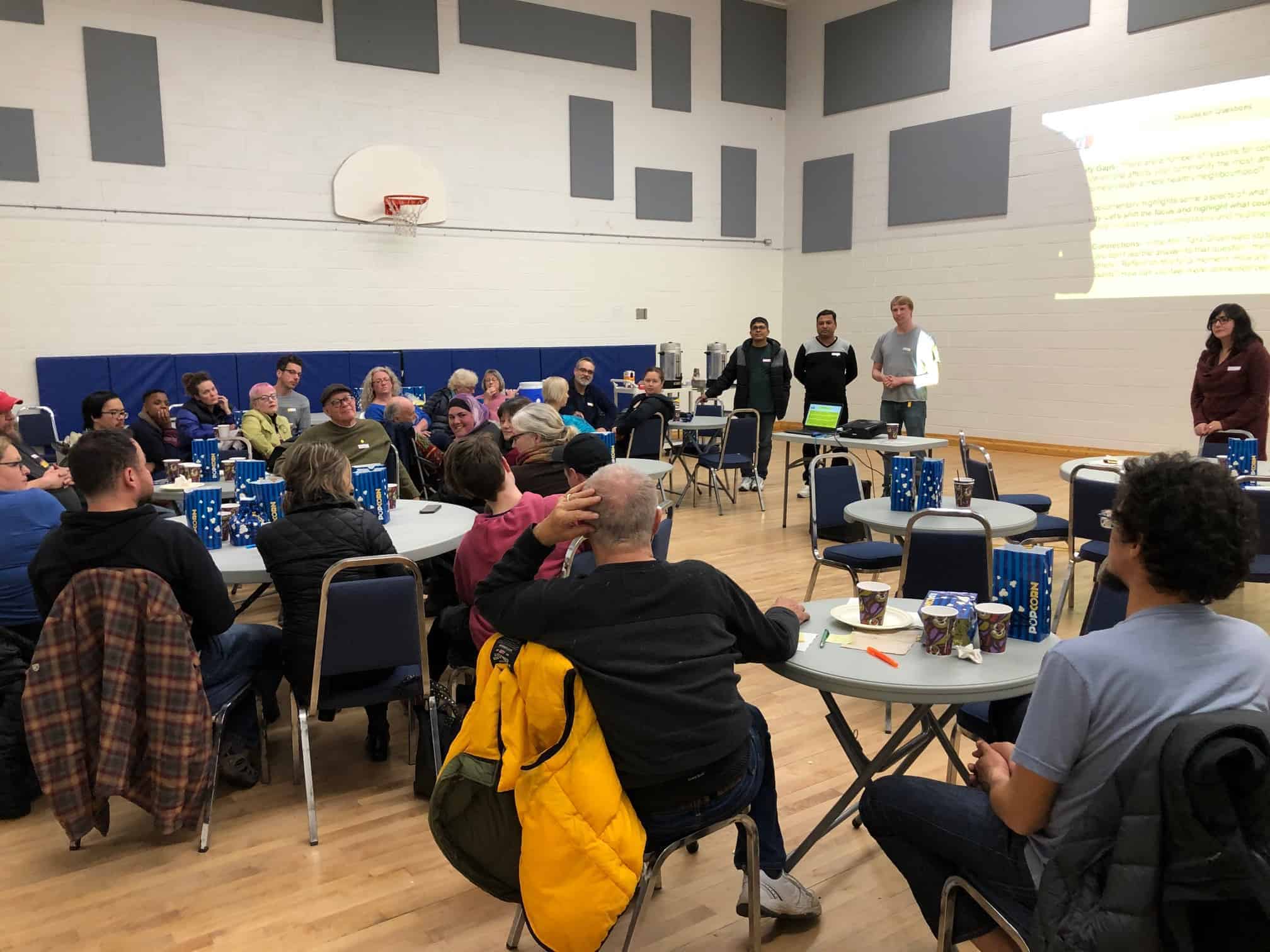People are meant to connect with each other
The Great Disconnect explores the effects of social isolation
On Nov. 21, students of MacEwan University’s social work program, in conjunction with Alberta Avenue Community League, hosted a screening of The Great Disconnect, a documentary about loneliness and the need for social connection and community.
Tamer Soliman, the director, producer, and co-writer, travelled to a small village in the Blue Mountains in Jamaica and witnessed happiness and a sense of community like none other found in North America. This sense of community seems to be lacking in North America, where nearly 60 million people suffer from loneliness. This number has doubled from what it was only decades ago.
Soliman seeks to answer why we’re so lonely.
Within the first 30 seconds of the film, writer and co-housing advocate Douglas Tindal announces: “We have, in North America particularly, exalted personal independence to an almost God-like state. There is no higher value than independence.” These are the first two lines spoken in the documentary, right after someone sings the opening lines of Raffi’s The More We Get Together over the opening credits. Those two statements together helped showcase how we strive for independence and our deep-rooted loneliness caused by independence.

Soliman showcases how people have been sold on the idea of independence and how we are spending more time alone. But social isolation takes a tremendous toll on our well-being. It is the medical equivalent to smoking 15 cigarettes a day and has the same impact on health as diabetes. The documentary also featured interviews with medical professionals. Some of those interviews revealed that those with fewer people to confide in are more likely to catch a cold and other illnesses.
But social isolation isn’t necessarily our own fault. Expanding cities develop outwards, creating suburbs and freeways, causing people to drive further distances. This development isolates people and disconnects them from family and friends. People work more, on average, than before. And most North Americans own smartphones, linking them to social media platforms where people shape and rewrite a happier version of their lives. Through social media, people tend to surround themselves only with those with similar opinions, blocking or unfriending those with whom we disagree, allowing people to become entrenched in their own opinions. Smartphones also connect us to news agencies selling only bad news, which lead people to distrust others. Trust, as is explained in the documentary, is required to build happiness.
There is hope, though. Green spaces and nature help relieve loneliness. As Ron Finley, LA-based fashion designer and urban gardener explains in the film, if all you see is despair, then that becomes normal. The gardens he grows in vacant lots have helped shape and grow communities because it brings people together.
The Great Disconnect states that people need to return to face-to-face communications. On average, people check their phones 47-82 times a day. It’s time to put down our phones, eat meals with family and friends, and be open to meeting new people. Think about the future and ask what kind of community you need to survive. Think about the South African term ubuntu: “I am because we are.”
After the documentary was over, the MacEwan social worker students held a group discussion to talk about the movie and people’s experiences with loneliness. I spoke with Terri, a Delton resident who thought the movie’s message was spot on.
“I think what it did is encouraged us to really believe that community is important for health and in other ways. I think you have to start there,” Terri explains. But she doesn’t think loneliness is a new thing. “I was born in the ‘50s and I don’t think that my neighbourhood was necessarily any different, as far as getting to know strangers, I think it was the same.” She says people may have been more involved in extended family than now, but that loneliness has always existed. “Especially people that don’t have the ability to get out. Whether you were born in the ‘50s, ‘60s, ‘70s, or now. You are still disadvantaged that way.”
She says she’s noticed people starting to reduce their time using electronics. “People talk about technology being such a big thing, but I think more and more people are realizing that it is harmful.”
Terri adds that people need to take more of an initiative to connect with others and not just wait for events to draw them out.
“I think we, as individuals, need to make decisions to get involved.”
Connect with neighbours on ca.Nextdoor.com

Featured Image: The Great Disconnect states that social isolation is bad for our health. | Stephen Strand







